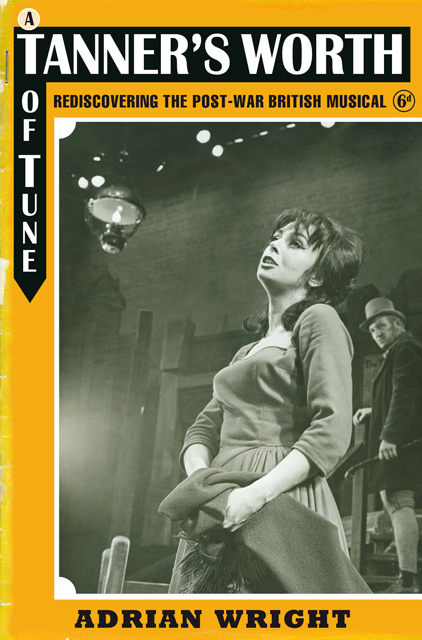Book contents
- Frontmatter
- Dedication
- Contents
- List of Illustrations
- Acknowledgements
- 1 Before and After: Identifying the British Musical
- 2 Delusions of Grandeur: Ivor Novello
- 3 Mastering Operetta: Noel Coward
- 4 Pastiche and Esoteric: Sandy Wilson
- 5 Resounding Tinkles: The plein air Musicals of Julian Slade and Dorothy Reynolds, Geoffrey Wright and Donald Swann
- 6 Away from Home: Adopted British Musicals
- 7 Community Singing: Realism and the British Verismo Musical
- 8 Specifically British: David Heneker, Monty Norman, Julian More and Wolf Mankowitz
- 9 To Whom it May Concern: The British Biomusical
- 10 Fin de Partie: John Osborne, Lionel Bart and After
- Appendix 1 Original Productions of British Musicals
- Appendix 2 Adaptations from Other Works, 1946–78
- Select Bibliography
- Index of Musical Works
- General Index
10 - Fin de Partie: John Osborne, Lionel Bart and After
Published online by Cambridge University Press: 01 March 2023
- Frontmatter
- Dedication
- Contents
- List of Illustrations
- Acknowledgements
- 1 Before and After: Identifying the British Musical
- 2 Delusions of Grandeur: Ivor Novello
- 3 Mastering Operetta: Noel Coward
- 4 Pastiche and Esoteric: Sandy Wilson
- 5 Resounding Tinkles: The plein air Musicals of Julian Slade and Dorothy Reynolds, Geoffrey Wright and Donald Swann
- 6 Away from Home: Adopted British Musicals
- 7 Community Singing: Realism and the British Verismo Musical
- 8 Specifically British: David Heneker, Monty Norman, Julian More and Wolf Mankowitz
- 9 To Whom it May Concern: The British Biomusical
- 10 Fin de Partie: John Osborne, Lionel Bart and After
- Appendix 1 Original Productions of British Musicals
- Appendix 2 Adaptations from Other Works, 1946–78
- Select Bibliography
- Index of Musical Works
- General Index
Summary
Beginning the end: The World of Paul Slickey
When the leading lady of The World of Paul Slickey (Palace Theatre, 5 May 1959; 47) gave a two-finger salute to the first night audience as the curtain fell, nobody should have been surprised. She was only doing what its author, John Osborne, had been doing all evening. For so seminal a work, this must be one of the most undiscussed, unremembered, unheard, unmourned British musicals of all time. Its relevance may have been almost completely overlooked, but we should not ignore one blazing fact: it is almost certainly one of the very worst musicals of all time. Or is it? Unfortunately, its ‘worseness’ has been set in the cement of received opinion. Even Osborne’s assiduous biographer John Heilpern gives it short shrift, accepting everything bad that has ever been said about it, and offering little illumination.
Slickey was meant as a major work. It is not a trifle that slid into Osborne’s canon when his career edged into the shadows. Slickey takes its turn with some Osborne jewels: Look Back in Anger (1956), The Entertainer (1957), Epitaph for George Dillon written with Anthony Creighton (1958), The World of Paul Slickey (1959), Luther (1961). The list is of works that hold their heads high in critical analysis, except for that 1959 blip. Although the script is still available, only a handful of the songs were ever published, and there is no official original cast, or any other, recording of them. What has been left is a recollection that Osborne once wrote a musical, and for his trouble was chased up Shaftsbury Avenue after its premiere by an angry mob. It really was a case of the Angry Young Man of British theatre inducing mass anger. Anger, it seems, is almost the raison d’être of Slickey – anyone in doubt need only read the playwrights’ dedication to the liars and deceivers, professionals who used their callings as ‘instruments of debasement’ . ‘In this bleak time, ‘ Osborne writes, ‘when such men have never had it so good, this entertainment is dedicated to their boredom, their incomprehension, their distaste.’
- Type
- Chapter
- Information
- A Tanner's Worth of TuneRediscovering the Post-War British Musical, pp. 222 - 248Publisher: Boydell & BrewerPrint publication year: 2010



